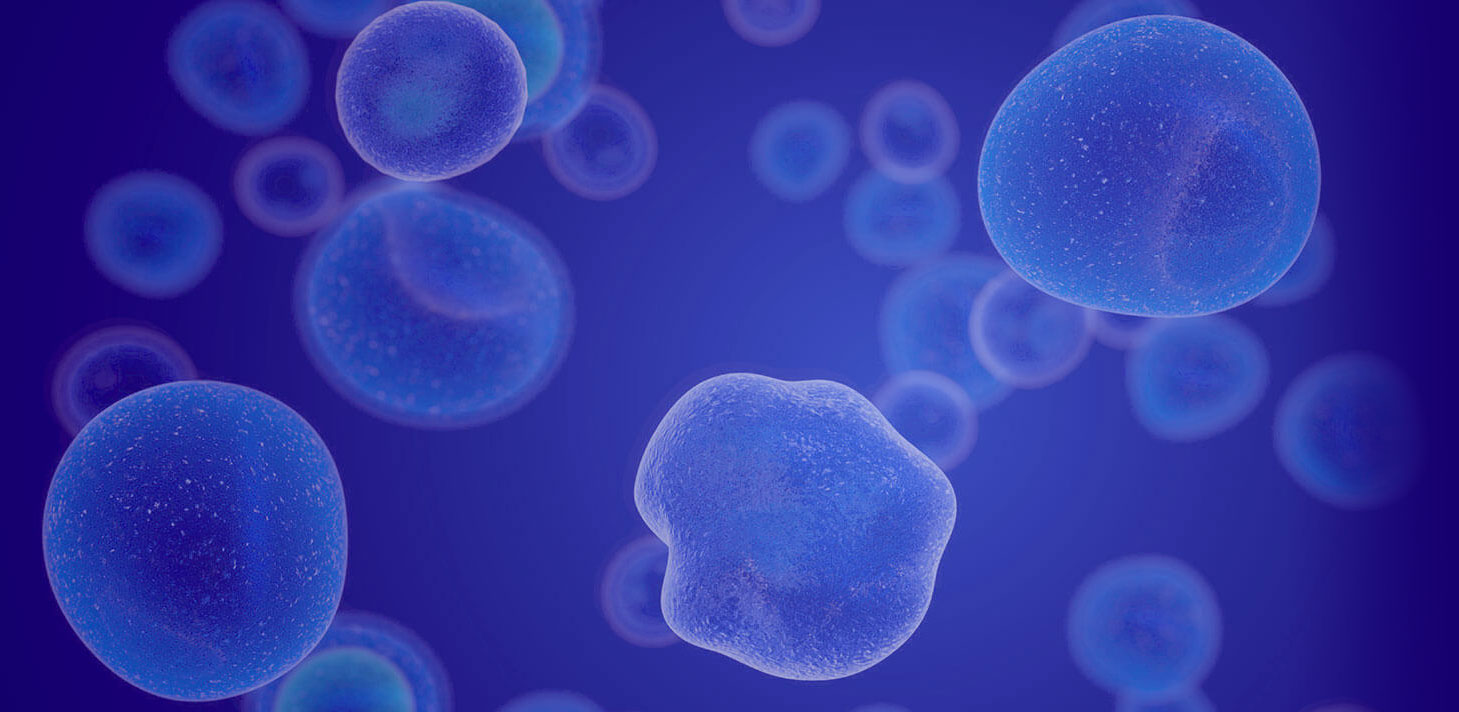Stem Cells for Cartilage Repair
Conveniently located to serve the areas of Greenville, SC, Spartanburg, SC, Columbia, SC, Anderson, SC and Asheville, NC

Stem cells are a revolutionary treatment that can help with issues in joints, connective tissue, cartilage, and more. Their countless medical benefits have helped patients alleviate different issues in parts of the body that have not responded to other treatments. Because cartilage has a low capability for repair and regeneration, many individuals experience joint pain and movement issues as they age. When treated with stem cells, cartilage can regrow and these individuals can reduce their pain and enjoy life more.
Dr. John Haasis has more than 25 years of medical experience, and he is one of South Carolina’s leading stem cell treatment experts. Additionally, Daisy Institute is a trusted provider of acupuncture, stem cells, supplements, and more.
If you would like to improve your health and emotional well-being with a stem cell regimen designed to repair your cartilage, schedule a consultation with Dr. Haasis to begin your treatment.
If you have any questions, please call any of our offices at (864) 775-5682 and get the information you need.
Contents
About Stem Cells for Cartilage Repair
Cartilage is the smooth, rubbery substance that covers the ends of bones at your joints. It also helps provide structure to certain parts of the body, like the ears and nose. It plays a critical role in providing cushioning and enabling joint movement without friction. Unfortunately, this crucial tissue can become damaged for numerous reasons, such as aging, wear and tear from overuse, or injuries. Many people seek stem cells to repair their cartilage, alleviate pain, restore function, and enhance mobility, particularly when traditional treatments fail.
The use of stem cells in cartilage repair has gained significant attention in recent years, highlighting the growing interest in regenerative medicine. These cells possess remarkable abilities to differentiate into various types of specialized cells, including those necessary for cartilage regeneration. As such, they are being explored across orthopedic applications.
Cartilage is composed mainly of specialized cells called chondrocytes, which produce a matrix made up of collagen and other proteins. This matrix is essential for maintaining cartilage structure, elasticity, and resilience. Cartilage damage may lead to conditions like arthritis, which affects millions of people around the world.
Unlike other tissues, cartilage does not have a strong capability to regrow and repair itself. Historically, cartilage repair has been achieved with artificial implants, but this is limited to cosmetic reconstructions like in the nose or ears. The cartilage that covers bone endings and assists in joint function would normally be left untreated until further issues emerged. Stem cell injections help this cartilage repair itself and prevent the development of more difficult complications.
Benefits
Stem cell treatments offer dozens of benefits that can improve a patient’s health and quality of life. Dr. Haasis’ patients typically experience:
- Reduction in pain: Sore, painful joints and issues like arthritis are reduced when stem cells restore cartilage where it is needed.
- Enhanced mobility: Individuals may see increased mobility and a widened range of motion after their treatment.
- Natural healing: Stem cells promote a regenerative response without the need for synthetic materials.
- Minimally-invasive treatment: Techniques often utilize needle-based injections rather than surgical incisions.
- Minimal side effects: Because stem cell therapies use the body’s own cells, there is no immune system response that could cause fever, rejection, or other unwanted side effects.
- Personalized treatment options: Dr. Haasis can tailor each stem cell regimen to treat your specific issues.
Candidates
Any patient who is experiencing pain or difficulties due to a cartilage deficiency can benefit from stem cell therapy. Typically, patients who respond best to these treatments are those with osteoarthritis, sport-related injuries, rheumatoid arthritis, or joint degeneration. Because stem cell therapies are non-invasive and pose minimal risks or side effects, these treatments are available for almost every patient. It is recommended that patients be in relatively good overall health and be willing to collaborate with Dr. Haasis to plan their optimal treatment and closely follow his instructions for recovering and prolonging their results.
Personal Consultation

Your stem cell therapy regimen will begin with a consultation with Dr. Haasis. At this appointment, you will primarily discuss the pain and discomfort you are experiencing and how for how long it has persisted. Any information you can provide from meetings with your primary care physician about this health issue will be beneficial in planning your treatment. Dr. Haasis will also perform examinations of the affected areas. You may also receive an x-ray of your joints to help Dr. Haasis and his team fully understand the scale of your cartilage degeneration.
Your general medical history will also be reviewed at this appointment. Stem cell therapies have low risks of side effects or complications, but we want to ensure patient safety in all procedures.
Preparation
You will receive specific preparation instructions from Dr. Haasis that will help optimize the outcome of your procedure. On the morning of your treatment, you may want to stretch to improve your muscle elasticity and maximize your range of motion. You may also be required to alter your medication to avoid any blood-thinning compounds. It is also generally recommended to arrange transportation to and from your appointment and plan to rest for a brief period (typically the remainder of the day) after your procedure.
Procedure
Stem cells can transform to fulfill a specific function in the body. This is known as “developmental plasticity,” and different stem cells have varying degrees of potential for developmental plasticity. (1) The stem cells used for cartilage repair are typically harvested from bone marrow. These are known as mesenchymal stem cells, or MSCs. However, stem cells derived from adipose tissue (body fat) may also be used in certain cases.
In this procedure, Dr. Haasis will carefully remove stem cells. Once harvested, this mixture of blood, stem cells, plasma, tissue, cell waste, and more will be processed. This mixture is placed in a centrifuge and spun rapidly to separate all of the various elements, and then the stem cells are isolated and prepared for injection.
These cells are injected into your joints in a few locations to ensure even distribution. The stem cells that are harvested are carefully selected to be the undifferentiated mesenchymal stem cells that produce collagen, hyaluronan, tenascin, and fibronectin. When placed into joints, these cells can condense to form cartilage and develop over time. (1)
Recovery
Because stem cell injection treatments are non-surgical and minimally invasive, very little recovery is required. You can expect some soreness in the harvest and injection sites for a few days, but this will naturally fade.
We do recommend that patients rest and take things easy for 2-3 days after their treatment. Doing so allows the stem cells to settle into the tissue where they are needed and helps them begin their repair process without significant stress.
Results
Cartilage in our joints helps to lubricate the movement of bones against each other and also helps to absorb shock. (2) By receiving a customized stem cell therapy treatment from Dr. Haasis and Daisy Institute, you may be able to see a reduction in your joint pain. Stem cell treatments have allowed individuals to resume the activities that bring them joy. Joints that were once creaky and painful will now be lubricated, healthy, and regain a fuller range of motion.
Corresponding & Complementary Procedures
We offer stem cell therapies for a wide variety of issues, not just cartilage repair–although cartilage degeneration is a common root cause across many of these. Our various stem cell treatments can alleviate joint pain, ankle injuries, and reduce shoulder pain. They can also be beneficial for facial rejuvenation, sexual function, muscle injuries, fibromyalgia, and much more. Stem cells can likely help you improve your quality of life, especially if other treatments have not worked.
Cost of Stem Cells for Cartilage Repair in South Carolina
Your stem cell therapy is planned to treat your specific issues, so its total cost will depend on the state of your cartilage degeneration, how many injections are required, the concentration of stem cells required, where they are harvested from, and more. When you meet with Dr. Haasis for your initial consultation, you will receive a cost estimate that reflects what is required in your procedure.
If you have any questions, please call any of the Daisy Institute offices at (864) 775-5682 to speak with one of our experts and get the information you need.
FAQ
How many injections are required to repair my cartilage?
This varies from patient to patient. Some may see an improvement in one treatment while others may require a few to see results. This all depends on the state of your cartilage and what is needed to repair it.
Where do stem cells come from?
Different types of stem cells can come from different sources in your body, but they will typically come from skeletal muscle, bone marrow, or body fat.
How do stem cells repair cartilage?
Cartilage does not have a strong ability to repair itself. Stem cells can transform into different types of cells to help the body heal, so when these are placed into cartilage, they adapt to reform this tissue.
How effective are stem cells for cartilage repair?
Dr. Haasis’ patients report satisfactory outcomes and see a significant improvement in their conditions. Stem cells have the potential to be quite effective.
References
- Ismail OM, Said UN, El-Omar OM. Adult Stem Cells for Cartilage Regeneration. Cureus. Published online December 7, 2022. doi:https://doi.org/10.7759/cureus.32280
- Cong B, Sun T, Zhao Y, Chen M. Current and Novel Therapeutics for Articular Cartilage Repair and Regeneration. Therapeutics and Clinical Risk Management. 2023;Volume 19:485-502. doi:https://doi.org/10.2147/tcrm.s410277


